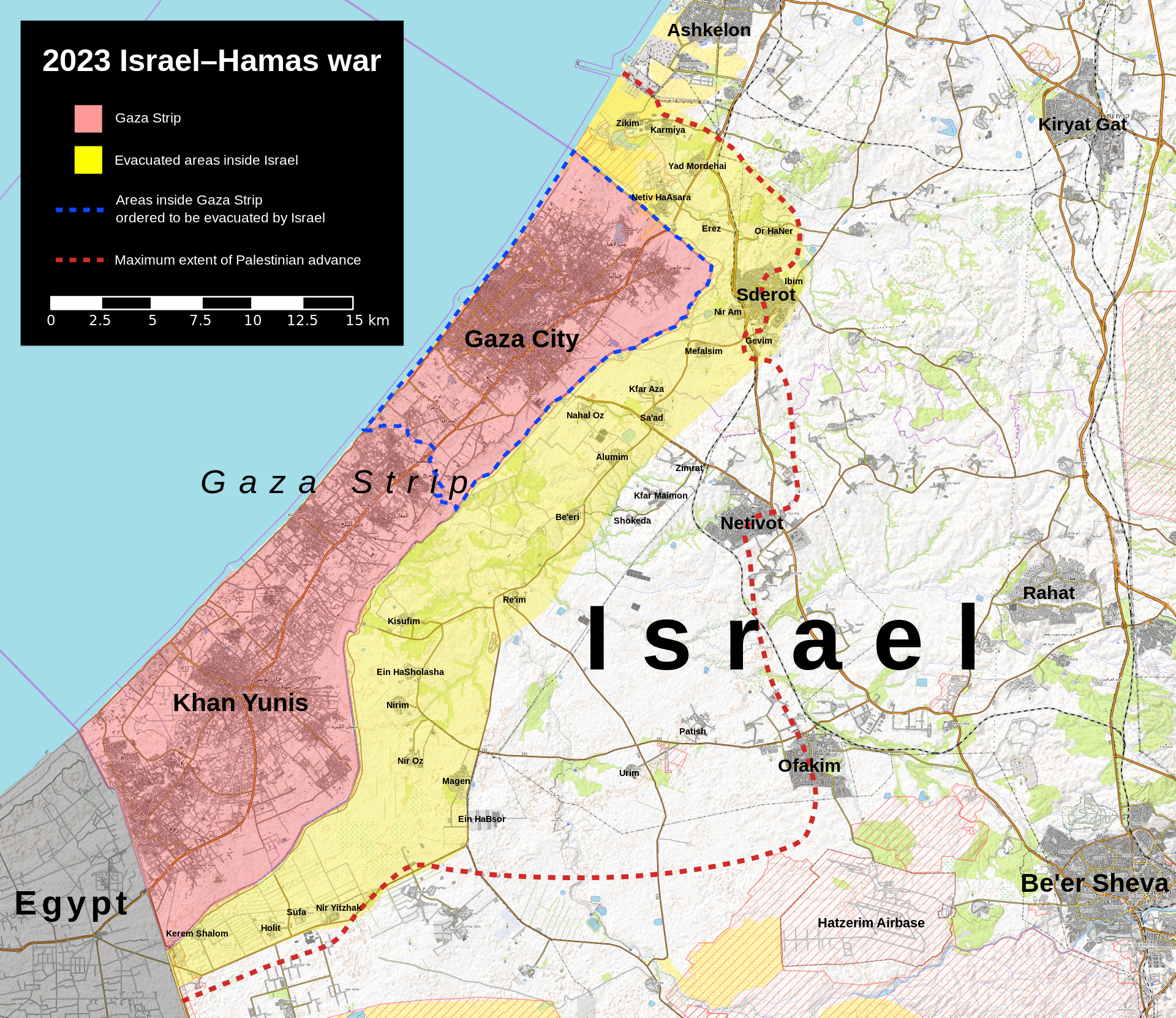Llewellyn King: When people come to love to hate
Hamas−Israel conflict at start of war, on Oct. 7-8.
— Photo by Ecrusized
WEST WARWICK, R.I.
Many years ago, I was mugged in Washington.
I was looking for an informal club of the kind that sprang up after hours around big newspapers. These “clubs” were usually just an apartment with beer, liquor and card games for those of us who finished work after midnight.
The club I was looking for was on 14th Street, which was considered a bad part of town. I never got there: I was jumped and punched by a group of teenagers, who threw me to the ground and took my wallet.
My colleagues at The Washington Post brushed it off as being my fault, a self-inflicted wound — no excuses for my nocturnal wanderings.
I was bruised and felt ashamed of my stupidity. But Barry Sussman, an editor, said, “Llewellyn, you didn’t mug yourself.”
It is a sentiment that comforted my shaken self then and has stuck with me. Incidentally, Sussman was the unsung hero of the Watergate story: He edited the reporting as it came in.
My initial reaction to the carnage in Israel was, “What happened to Israeli intelligence? Where was the vaunted Mossad? By extension, where was the CIA, known to work closely with Mossad?”
Once on the Golan Heights, an Israel Defense Forces officer stood with me and boasted about how, with American-supplied gear, the military could listen to telephone calls in Jordan or watch a Syrian soldier on the plain below leave his tent to pee in the night.
So where was the surveillance, and what of human intelligence?
Thousands from Gaza went into Israel every day to work. Surely someone would have seen something; someone would have blown the whistle on Hamas’s intention to wreck mayhem on innocent Israelis — 1,400 were butchered.
Anthony Wells, a retired intelligence officer and author, who uniquely served in both the British and American intelligence services, told me in an interview on our television program, White House Chronicle, that the administration of Israeli Prime Minister Benjamin Netanyahu was partly to blame. He said the prime minister had leaned toward Hamas, ignoring the Palestinian Authority, and sometimes ignoring Mossad. This, plus political unrest in Israel over Netanyahu’s plan to curtail the power of the Supreme Court, added to the intelligence failure.
But Israel didn’t mug itself.
The planners of the industrial-scale murder of Israelis at a music “festival for peace,” of all things, had to know that Israel would take terrible revenge; that the hurt to the people living in the Gaza Strip would exceed the hurt brought to Israel; that the vengeance would be swift and terrible.
I have noticed that where there is long-enduring hatred, as between the Greeks and the Turks, the Protestants and the Catholics in Northern Ireland, and the Shona and Ndebele in Zimbabwe, hating has its own life. People come to love to hate, to revel in it, even to find a kind of comfort in it.
Hatred also is taught, handed down through the generations.
In the Arab-Israeli conflict, the Arabs have come to treasure their suffering and to love their hating. But, as Wells told me, wars of vengeance have a price: Witness the U.S. response to 9/11 with the invasion of Afghanistan.
The suffering on both sides in the Israel-Gaza conflict is hard to process. The screaming of wounded children, the hopelessness of those who won’t be whole again, the agony of those who pray for death as they lie under rubble, hoping only for quick release.
The Israeli-Palestinian peace process is now put asunder. It went on too long without peace.
David Haworth, the late English journalist, said, “I’m tired of the process, where is the peace.?” Exactly. Now it may be decades away as Israel digs in and the Palestinians ramp up their devotion to victimhood.
The blame game for what happened is in full swing: anger at the intelligence failure; the national distractions in Israel, initiated by Netanyahu; the slow response by the Israel Defense Forces.
I must remind myself over and over again, as my heart goes out to the people of Gaza, and the generations which will pay the price, that Israel didn't mug itself: It was invaded by terrorists for the purpose of terror.
My parting thought: The mass killing of the kind in Israel and Ukraine diminishes all of us. It makes the individual, far from the slaughter, feel very insignificant — and lucky.
Llewellyn King is executive producer and host of White House Chronicle, on PBS. His email is llewellynking1@gmail.com and he’s based in Rhode Island and Washington, D.C.
